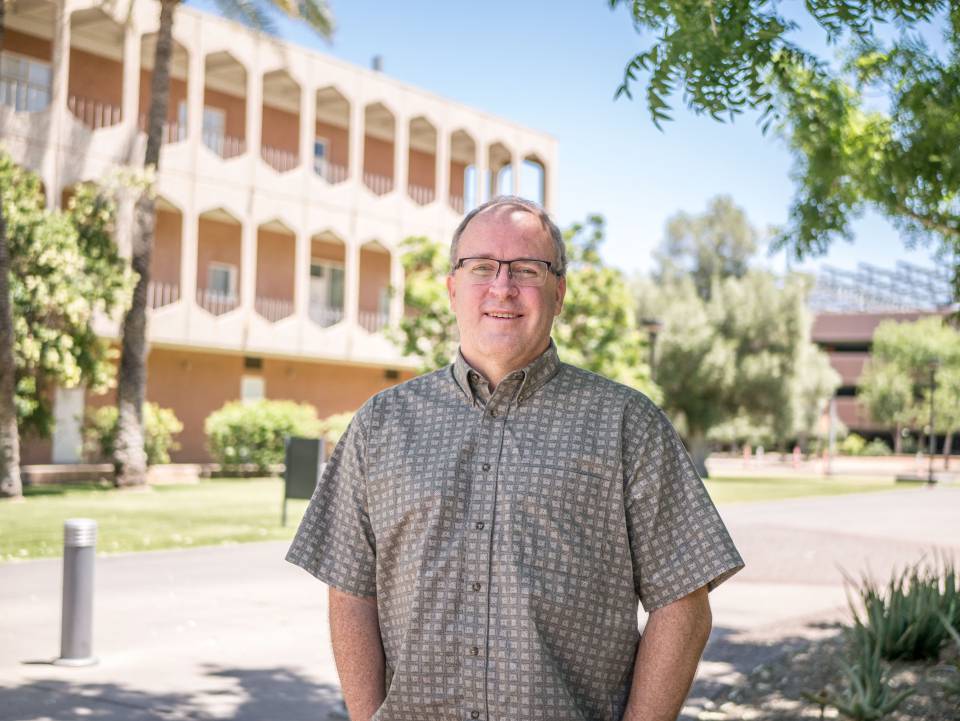
Addiction Neuroscience Laboratory (Olive)

We are interested in examining how abused drugs affect the brain on a neurobiological level. Specifically, what long-lasting changes do abused drugs produce in the brain that ultimately result in dependence and addiction? Can these changes be minimized or reversed? What makes some individuals vulnerable to addiction while others are resilient? Under what circumstances, and in what brain regions, do drugs produce toxic effects on neurons and other cell types? Given the poor outcomes of existing treatments for addictive disorders, our ultimate goal is to identify novel biological targets for innovative therapies that can be integrated into other treatment approaches to facilitate healing of the addicted brain.
Current research projects in the laboratory utilize model organisms to examine:
- The neural circuits and neurochemical mechanisms underlying the ability of alcohol to activate brain endorphin systems
- The abuse liability and neurotoxicity of emerging drugs of abuse such as synthetic cathinones (“bath salts”)
- The ability of abused drugs to induce lasting morphological (structural) changes in neurons
- Mechanisms of alcohol dependence and co-abuse with psychostimulants
- Optogenetic and chemogenetic control of neural circuits that underlie addictive behaviors
Lab Director & Principal Investigator: M. Foster Olive, PhD, Professor
Dr. Olive received his undergraduate degree in Psychology from UC San Diego, and his doctoral degree in Neuroscience from UCLA. His postdoctoral research was performed at Stanford University and the University of California at San Francisco. His research has been published in journals such as Psychopharmacology, Biological Psychiatry, Journal of Neuroscience, and Nature Neuroscience, and he currently serves on the editorial boards for Neuropsychopharmacology, Addiction Biology, Neuropharmacology, and Frontiers in Pharmacology. Dr. Olive’s research is supported by the National Institute on Alcohol Abuse and Alcoholism and the National Institute on Drug Abuse. He is a member of the ASU Leadership Academy Neuroscience team and was previously nominated for the Zebulon Pearce Distinguished Teaching Award.
Postdoctoral Fellows
Jonna M. Leyrer-Jackson, Ph.D.
Graduate Student(s)
Amanda Acuna
Research Staff
Erin Nagy, Lab Manager
Serena Rodarte, Research Technician
Lab alums: where are they now?
Former Postdoctoral Fellows:
Jonna M. Jackson, PhD, Assistant Professor, Creighton University
Peter Kufahl, PhD; Software Engineer, Praxis Resources
Sara Taylor, PhD; Assistant Professor, Department of Psychology, Hendrix College
Lauren E. Hood, Ph.D., Principal Investigator, Neuroscience, Inotiv Boulder
Former graduate students:
Amber LaCrosse, PhD; Assistant Professor, Department of Psychological Sciences, University of Northern Michigan
Candace Lewis, PhD; Postdoctoral Fellow, ASU Department of Psychology and Translational Genomics Research Institute
Seven E. Tomek, PhD; Medical Science Liaison, Caris Life Sciences
Lucas Watterson, PhD; Director, Field Medical Excellence – Addiction, Alkermes
Select Publications
Below are a sample of recent publications from Dr. Olive's research and lab. For additional articles, please contact Dr. Olive.
2021
Leyrer-Jackson JM, Overby PF, Nagy EK, Olive MF. Early life stress promotes heroin seeking but does not alter the excitability of insular pyramidal cells targeting the nucleus accumbens. Frontiers in Behavioral Neuroscience 15:777826, 2021.
Leyrer-Jackson JM, Hood LE, Olive MF. Drugs of abuse differentially alter the neuronal excitability of prefrontal layer V pyramidal cell subtypes. Frontiers in Cellular Neuroscience 15:703655, 2021
Leyrer-Jackson JM, Hood LE, Olive MF. Alcohol consumption preferentially activates a subset of pro-opiomelanocortin (POMC) producing neurons targeting the amygdala. Neuropharmacology 195:108674, 2021.
Namba MD, Leyrer-Jackson JM, Nagy EK, Olive MF, Neisewander JL. Neuroimmune mechanisms as novel treatment targets for substance use disorders and associated comorbidities. Frontiers in Neuroscience 15:650785, 2021.
2020
Hood LE, Leyrer-Jackson JM, Olive MF. Pharmacotherapeutic management of co-morbid alcohol and opioid use. Expert Opinion of Pharmacotherapy 21:823-839, 2020.
Nagy EK, Overby PF, Olive MF. Reinforcing effects of the synthetic cathinone α-pyrrolidinopropiophenone (α-PPP) in a repeated extended access binge paradigm. Frontiers in Psychiatry 11:862, 2020.
Leyrer-Jackson JM, Nagy EK, Hood LE, Newbern JM, Gipson CD, Olive MF. Ethanol has concentration-dependent effects on hypothalamic POMC neuronal excitability. Alcohol 86:103-112, 2020.
2019
Leyrer-Jackson JM, Nagy EK, Olive MF. Cognitive deficits and neurotoxicity induced by synthetic cathinones: is there a role for neuroinflammation? Psychopharmacology (Berl) 236(3):1079-1095, 2019
Leyrer-Jackson JM, Olive MF, Gipson CD. Whole-cell patch-clamp electrophysiology to study ionotropic glutamatergic receptors and their roles in addiction. Methods in Molecular Biology 1941:107-135, 2019
2018
Sewalia K, Watterson LR, Hryciw A, Belloc A, Ortiz JB, Olive MF. Neurocognitive dysfunction following repeated binge-like self-administration of the synthetic cathinone 3,4-methylenedioxypyrovalerone (MDPV). Neuropharmacology 134:36-45, 2018.
Simmons SJ, Leyrer-Jackson J4, Oliver C, Hicks C, Muschamp JW, Rawls SM, Olive MF. DARK classics in chemical neuroscience: cathinone-derived psychostimulants. ACS Chemical Neuroscience 9:2379-2394, 2018.
News & more!
Drug addiction is complex, and Arizona State University neuroscientist Foster Olive has spent his career working to unravel why and how the brain becomes addicted to drugs.
The ASU Department of Psychology recently promoted Olive from associate professor to full professor because of his research efforts
-----
 Although it has caused health effects in the past, LSD should not be lumped in with other recreational drugs. “LSD is believed to reduce our sensory filters that normally block out unnecessary sensory information, but also cause the brain to perceive sensations that are not actually present," Olive said. Read more in the State Press, LSD is in a league of its own (posted 11 Sep, 2016, photo courtesy of Chuck Dries).
Although it has caused health effects in the past, LSD should not be lumped in with other recreational drugs. “LSD is believed to reduce our sensory filters that normally block out unnecessary sensory information, but also cause the brain to perceive sensations that are not actually present," Olive said. Read more in the State Press, LSD is in a league of its own (posted 11 Sep, 2016, photo courtesy of Chuck Dries).
![]()
At age 28, ASU alum Candace Lewis is both a Bisgrove Scholar and a Fulbright Scholar. Read more in Discovering what makes us tick ( ASU Now, 24 Nov, 2015).
![]()
After working in Dr. Olive's lab, SoLS student, Brian Burrows, decides to pursues neuroscience research and medical school. Read more about Brian's story and accomplishments including his award as “Student of the Year in Biological Sciences – Animal Physiology and Behavior” (ASU Now, 15 May, 2015)
Contact Us
For information regarding undergraduate volunteer opportunities, please check back at a future date.

